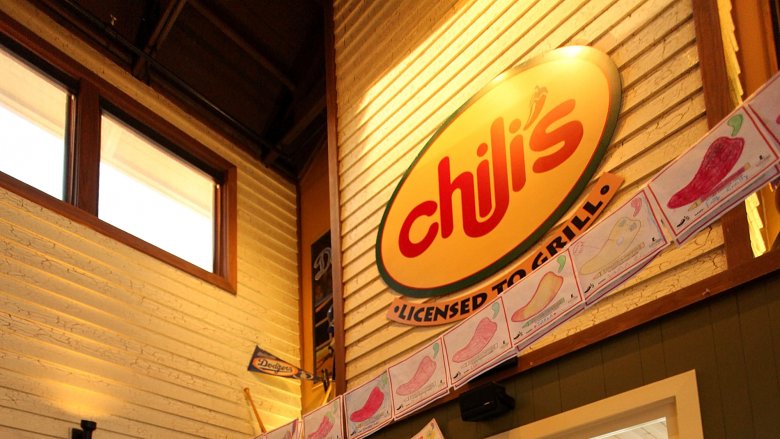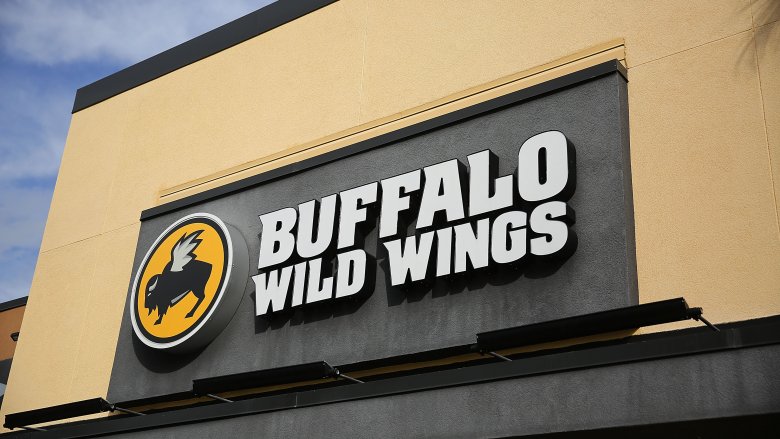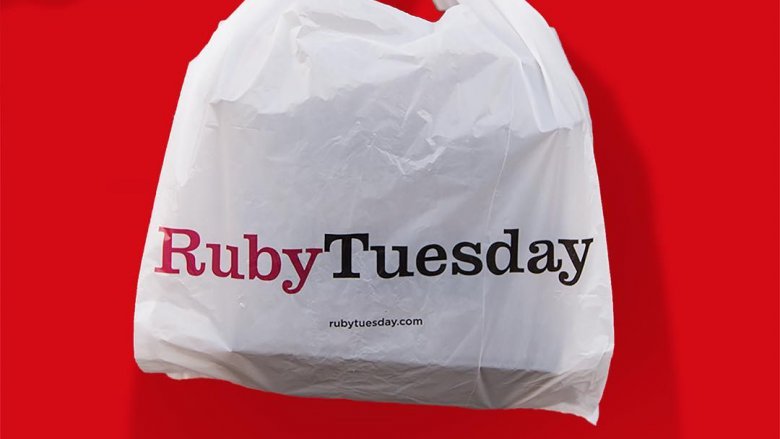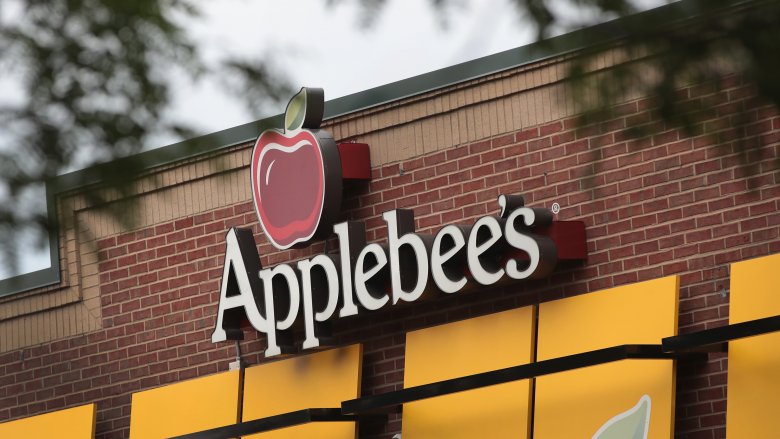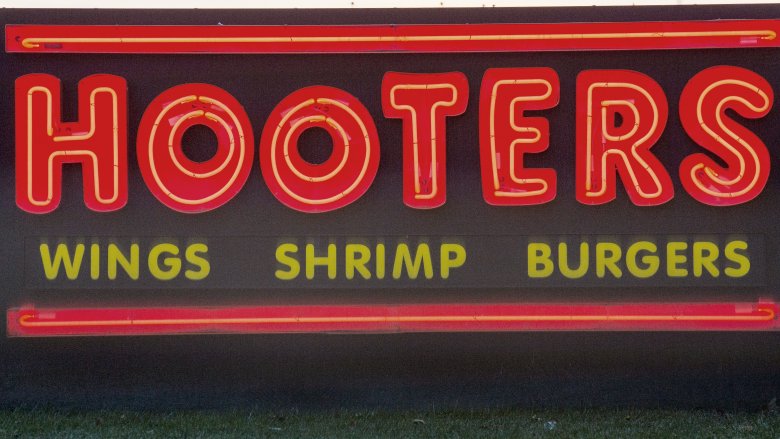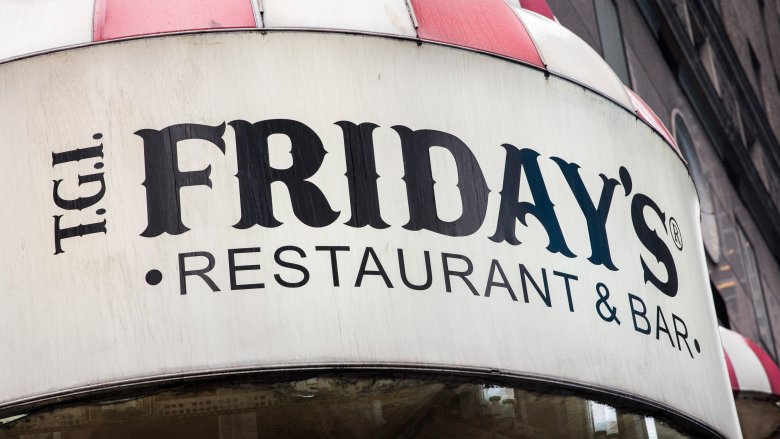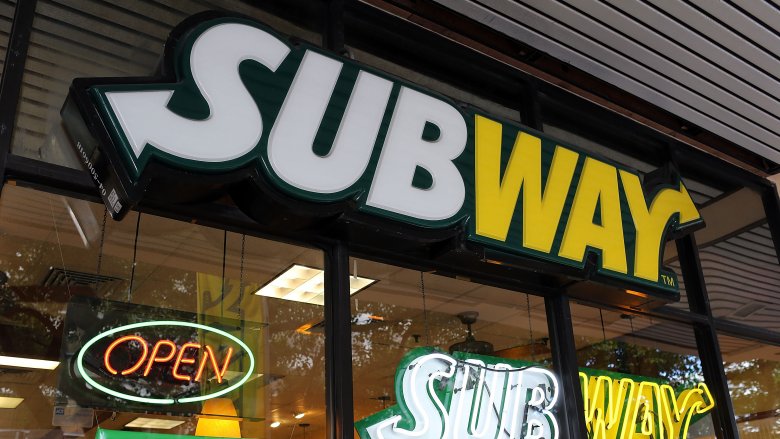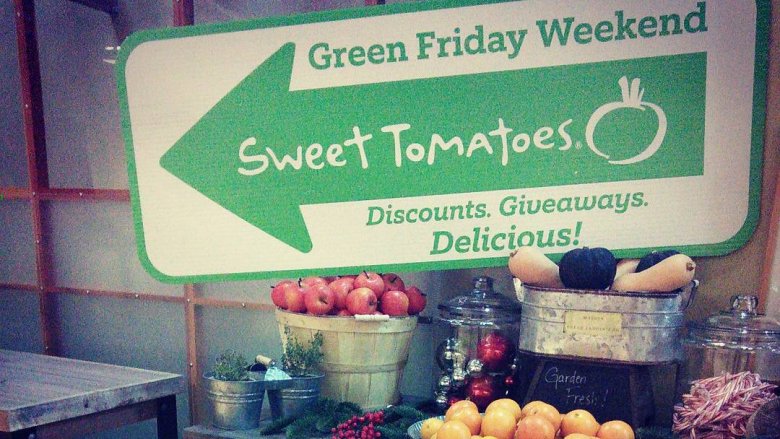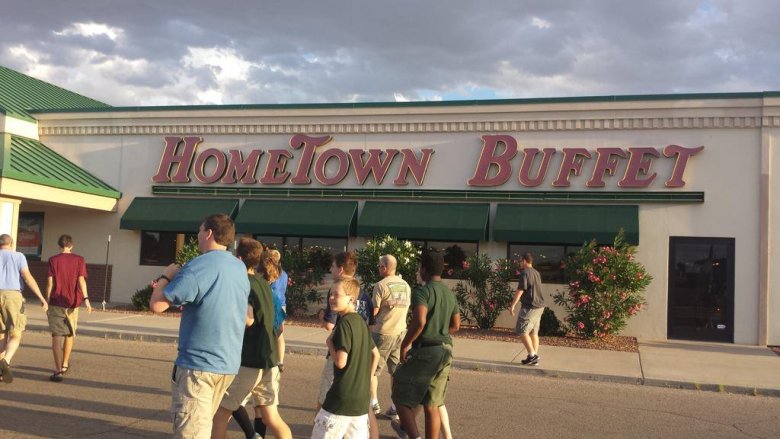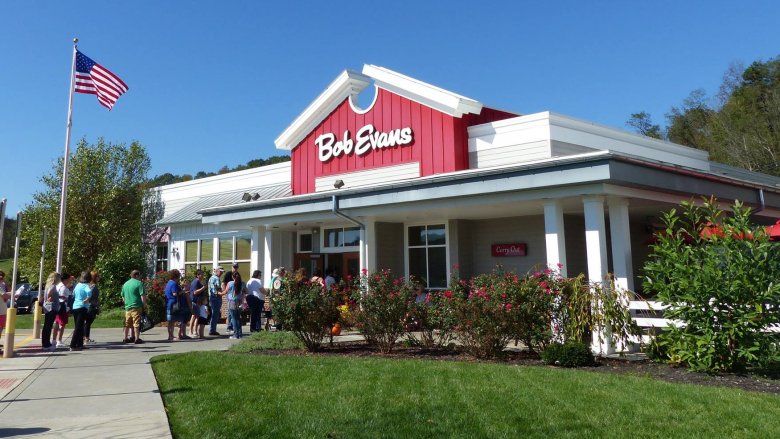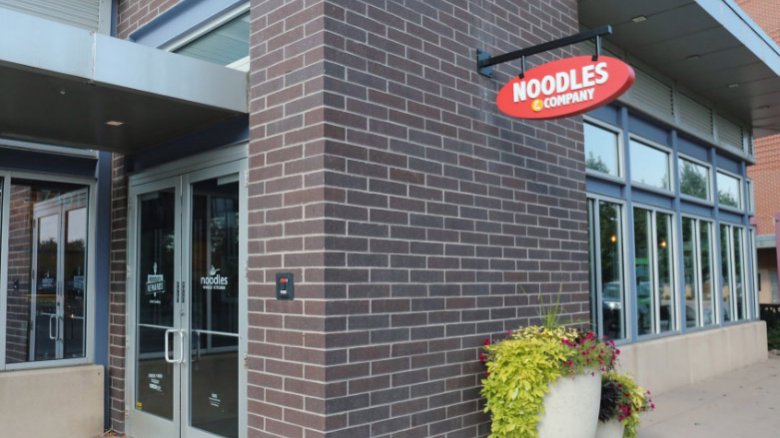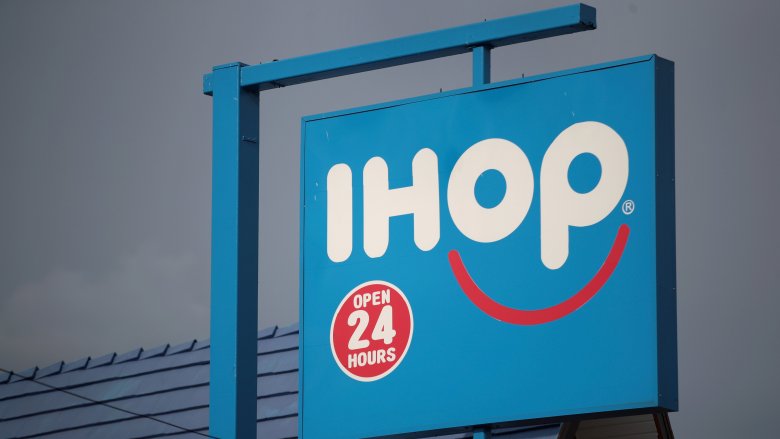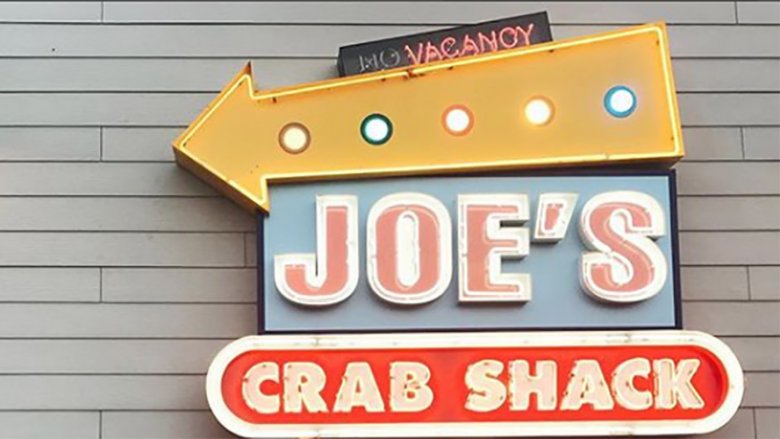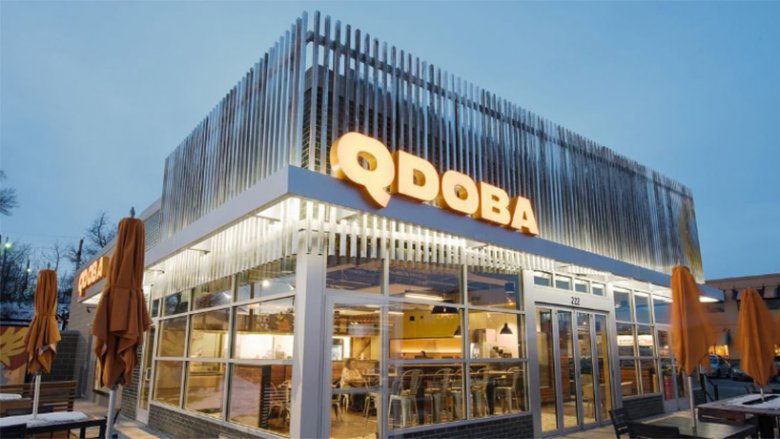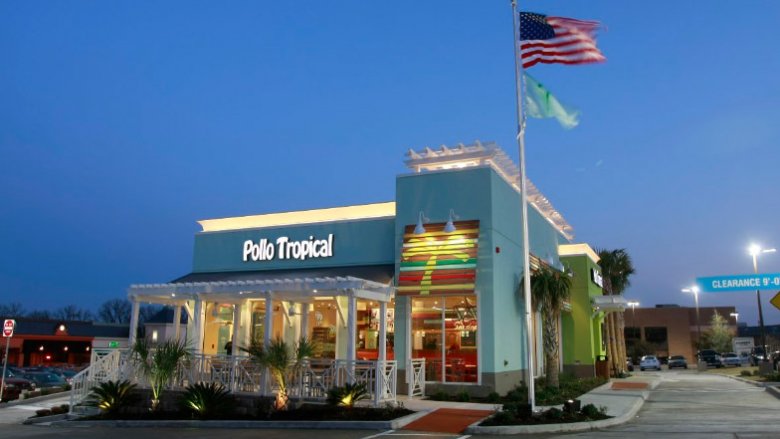Famous Restaurant Chains That Are Surprisingly Failing Today
Casual dining, which once was a robust and profitable industry, has been on the decline for some time now. That means that many of those ubiquitous restaurant chains you'd find in every shopping and strip mall are no longer feeding throngs of hungry shoppers like they used to. So which chains have fared the worst in an industry that's exceedingly cutthroat? And what efforts are these chains making to get diners back on their barstools? Here's a list of famous restaurant chains that, surprisingly, are struggling to hold on in a new dining landscape.
Chili's
Do you like baby back ribs? Whether you do or don't, chances are you're familiar with their famous Chili's earworm that sings their praises. But Chili's isn't doing so hot lately, and has seen declining business for some time now. Additionally, their stock plummeted 40 percent in 2017. After implementing a slew of menu rebrandings and other promotions, including a loyalty program that would end up eating into their profits, they recently slashed about 40 percent of their entire menu in an attempt to streamline and simplify operations. They've also ramped up an aggressive marketing campaign to try and get more people through the door.
Buffalo Wild Wings
Fewer foods are more iconically American than chicken wings, but that's not providing much solace for Buffalo Wild Wings, whose stock numbers have been disappointing as of late, especially when compared to fast-casual powerhouse Panera. According to former CEO Sally Smith, the chain is feeling the pinch due to what else: Millennials. Business Insider reported that in a letter to shareholders, she wrote, "Millennial consumers are more attracted than their elders to cooking at home, ordering delivery from restaurants, and eating quickly, in fast-casual or quick-serve restaurants." Because of their declining numbers, there's been a bit of a kerfuffle among board members, who have clashed regarding how to steer the company moving forward. Most intriguing, however, was the announcement that Arby's was purchasing Buffalo Wild Wings for $2.9 billion, so who knows what's coming next.
Ruby Tuesday
Ruby Tuesday, once a familiar staple in malls around the country, hasn't been running in the black for a long time. As of August of 2017, they reported a revenue drop of 12.8 percent, which is not surprising given that they closed over 100 stores the year prior. That's on the heels of the resignation of former CEO James "JJ" Buettgen, who had steered the company since 2012. Jim Hyatt, former CEO of Church's Chicken was announced as his successor in April of 2017, but he was quickly ousted in December of that same year, when the chain was sold to a private company, NRD Capital. Even under new ownership, Ruby Tuesday's continue to close restaurants, with around 400 locations closing in the last decade.
Applebee's
Applebee's, like Buffalo Wild Wings, blames a significant amount of its failure on millennials. Although the company fought valiantly to attract customers born between 1980 and 2005 with extensive renovations and redesigns, they've since announced that they're giving up on the battle. In a 2017 call with investors, Brand President John Cywinski said, "In my perspective, this pursuit led to decisions that created confusion among core guests, as Applebee's intentionally drifted from what I'll call its 'Middle America' roots and its abundant value position. While we certainly hope to extend our reach, we can't alienate Boomers or Gen-Xers in the process," according to Business Insider. They closed 46 restaurants in 2016, 99 in 2017, and have announced they'll close another 60-80 in 2018.
Hooter's
In the world of "breastaurants," Hooters was the trailblazer — it was the first restaurant of its kind, and it spawned a host of similar establishments. But business has not been booming lately for the orange and white purveyor of wings, beer, and cleavage. In fact, they closed seven percent of their locations between 2012 and 2016, and sales have been stagnating according to industry experts. There's some speculation that the drop in sales is due to a decreasing interests in breasts in general, but Hooters is also plagued by the same issues that haunt other restaurant chains: stiff competition in the sit-down, casual dining market. Perhaps their new endeavor — a fast-casual chain called Hoots with fully-clothed staff — will help them win new customers.
TGI Friday's
Plenty of people look forward to Fridays, but maybe not in the way that TGI Friday's would want. Sales for the chain dropped 1.1 percent in 2015, and 2.7 percent in 2016, showing that they too are not immune to the threat of fast-casual and the decline of shopping malls. In order to stay afloat and ideally become more profitable, the company is trying to rebrand itself as a trendy gastropub; they're redesigning to make the bar more prominent, focusing on urban markets (as opposed to suburban markets), and of course, offering endless appetizers on a permanent basis. They hope that can make them stand out from the crowd.
Subway
Subway, which has more locations than McDonald's, has fallen upon some hard times. In 2016, they closed a whopping 359 locations in the United States, and another 909 locations in 2017. Intense competition from fast-casual restaurants has been identified as factor in their dwindling sales, but the imprisonment of former spokesperson Jared Fogle for child pornography possession certainly didn't help the business either. To woo customers back, they've overhauled their management team, are starting a delivery service, and plan to source chicken with no antibiotics and use only cage-free eggs. They've also redesigned their logo.
Still, according to the New York Post, they've seen their traffic decline by 25 percent in the last five years, and that's a lot. They're going to have to do a lot more if they want to bring those numbers back up.
Souplantation and Sweet Tomatoes
Sister restaurants Souplantation and Sweet Tomatoes sold all of their assets to a private investment firm at the beginning of 2017. The move came as part of a bankruptcy restructuring program, as the soup and salad purveyor filed for bankruptcy protection in 2016. They now operate less than 100 stores, as they have closed 20-30 restaurants including those in Kansas, Utah, Illinois, and Dallas. The company cited higher minimum wage requirements, employee benefit costs, declining sales, and rent and cost increases as their major fiscal challenges. In spite of their failure on a national level, though, their Southern California locations — where they started business back in 1978 — will likely continue operating.
Outback Steakhouse
Outback Steakhouse, home of the culinary calorie bomb known as the Bloomin' Onion, is yet another restaurant feeling the pinch as of late. Bloomin' Brands, who owns the Outback brand, saw its stock drop eight percent during the summer of 2017, signaling that they're having trouble getting diners through the door. CEO Elizabeth Smith predictably identified a competitive market and the increasing tendency for people to prepare meals at home as the major source of their economic woes. The company sold 53 corporate-owned locations to franchisees in 2017 — the same year they closed at least 13 locations.
One investor blames the struggle on the fact that parent company, Bloomin' Brands, has too many irons in the fire. According to those investors, their other restaurant interests, including Bonefish Grill, Carrabba's Italian Grill, and Fleming's Prime Steakhouse & Wine Bar, are taking away from what should be their primary focus — Outback Steakhouse.
HomeTown Buffet
Buffet-style dining is not unpopular in the the United States. But that trend could be shifting, as Ovation Brands, the company that owns HomeTown Buffet, Old Country Buffet, Ryan's, and Fire Mountain abruptly closed more than half of it's restaurants in 2016 and filed for bankruptcy. According to workers, they showed up to work only to find out that they no longer had jobs, and were given no notice of the closures. Recent trends toward healthier eating (and smaller portions) could be one major reason for the floundering buffet business.
Bob Evans
Bob Evans, a restaurant chain that specializes in American comfort food, instituted some major changes in recent years. In 2016, they closed 27 underperforming restaurants in several states, including in their native Ohio. Then in January of 2017, they sold the remainder of their restaurants to a private equity firm called Golden Gate Capital, who also own Red Lobster and California Pizza Kitchen. While the new owners said they did not expect to close more locations, it still remains to be seen whether or not their changes, such as revamped menus and fresher ingredients, will impress customers.
Noodles & Company
With an extensive selection of pasta-based dishes like barbecue pork mac, spicy Korean beef noodles, and spaghetti and meatballs, this Colorado-based fast-casual chain caters to pretty much every palate. The company was conceived by a marketing director in 1995 and spread throughout the country, operating 60 locations in its home state of Colorado alone.
Thanks to additional offerings like salads and soups and an average check coming in at an affordable $8 a person, the franchise has the perfect recipe for lunch crowd success. Or so it would seem.
Recent years have not been kind to the franchise and in 2017 it closed at least 39 restaurants out of 55 proposed closures, while opening 14 to 17 locations. They also had plans to sell off several corporate-owned locations to franchisees. The company reported a net loss of $71.7 million in 2016, including $10.6 million loss for claims related to a data breach.
In an effort to boost sales, the company did roll out a "NoodlesREWARDS" customer loyalty incentive in an effort to keep customers from straying in favor of other fast-casual dining options. Currently, just one new location opening in California is on the books.
IHOP
Remember a few months ago when IHOP ran that campaign where they wanted people to guess why they were temporarily changing their name to IHOb? Many assumed it was breakfast, until the company revealed it was an effort to get people in the door for a burger.
The unfortunate reason for jumping on the burger bandwagon is that pancakes just aren't selling like hotcakes these days. The company announced the closure of between 30 and 40 of its restaurants in 2018, following up on the 23 that closed the previous year. Still, the company says they'll be opening up to 100 new locations, so they're not giving up yet.
Recently, they've been depending on dinner menus, delivery, hot deals, and publicity stunts (like the flubbed IHOb re-branding) to bring customers in their doors. It's working, but it might not be enough. In May 2018, IHOP's parent company reported that their same-store sales rose for the first time after seven quarters of downward trends. In that same report though, they also noted that their traffic has dropped for 10 straight quarters.
Joe's Crab Shack
It's always unfortunate when restaurant workers learn they'll be soon be out of a job. In most cases, they're at least given a heads up, but that wasn't what happened with Joe's Crab Shack locations around the country.
The employees of the seafood franchise reportedly showed up for work only to find that the doors were locked and that their services were no longer needed. "It feels like you've been punched in the gut, said former employee Valerie Schwartz.
In August 2017, the chain abruptly closed 41 of its 112 locations after the restaurant's parent company, Ignite Restaurant Group, filed for bankruptcy that June. The restaurant was quickly purchased by mega hospitality brand Landry's Inc. (Bubba Gump Shrimp Co., Morton's The Steakhouse, Rainforest Cafe, etc.) for $57 million in a bankruptcy auction. Oddly enough, Joe's is now back in the hands of one of its earliest owners.
Landry's CEO Tilman Fertitta bought a single Joe's Crab Shack back in 1994 and grew the chain before selling it in 2006. The future of the crab shack remains uncertain, however, Fertitia said that more closures could be in the future until the chain is brought down to a more profitable number of locations. "We will be shrinking the concept down tremendously," said Fertitia. Currently the franchise sits at 60 locations
Qdoba
There's no shortage of fast casual burrito joints in the United States today. Between Chipotle, Moe's, Baja Fresh, Freebirds, Barberitos, and a host of others, the competition is fierce. Those who can't continuously win-over the lunch crowd in their market get tossed out like yesterday's queso, and that unfortunately seems to be happening with Qdoba Mexican Grill
The fast-casual Mexican chain started in Denver back in 1995, and despite closing numerous locations over the years, it has continued to replace them with new eateries. The chain axed 67 out of its 647 locations in 2013, but as of 2017, 729 restaurants were in operation. The company also opted for a tweak in its name a few years ago, dropping the "Mexican Grill" and going with "Mexican Eats" because they felt it better spoke to the "breadth and variety that the brand offers." Okay, whatever, Qdoba.
How much that name change has helped is debatable. The chain was sold in March 2018 by its owner, Jack in the Box, after a loss of $0.6 million in the first quarter of 2018. Apollo Global Management bought the franchise and since then locations have closed in Connecticut, Pennsylvania, and Virginia.
Pollo Tropical
Sometimes it can be difficult to get others to join the fiesta, even when you know you have a good thing going. That couldn't be more true than it is for Caribbean fast food chain Pollo Tropical. The Miami-based chain has been serving up fried plantains and mojo pork since 1988, but has struggled to get folks in outside markets to jump on its conga line of Latin flavors.
Owned by Fiesta Restaurant Group Inc., the chain expanded into New York, Georgia, Texas, and Tennessee, but in 2016 things started to slip. In November the company announced it had a quarterly loss of $4.5 million and in 2017 it began pulling out of certain markets. The company closed all of its locations in Austin and the Dallas/Fort Worth area, leaving just six locations in the Lone Star State open — although those eventually closed, too. At the same time, the company closed all of its locations in Tennessee, but opted to keep its 13 locations in the greater Atlanta area open.
"While the decision to close restaurants is never easy, we believe it is vital to focus the company's resources and efforts on markets and locations that have proven successful for our brands," read a statement by CEO Richard Stockinger.
For now, the company still operates 140 US locations, but they're limited to Florida and the greater Atlanta area.
